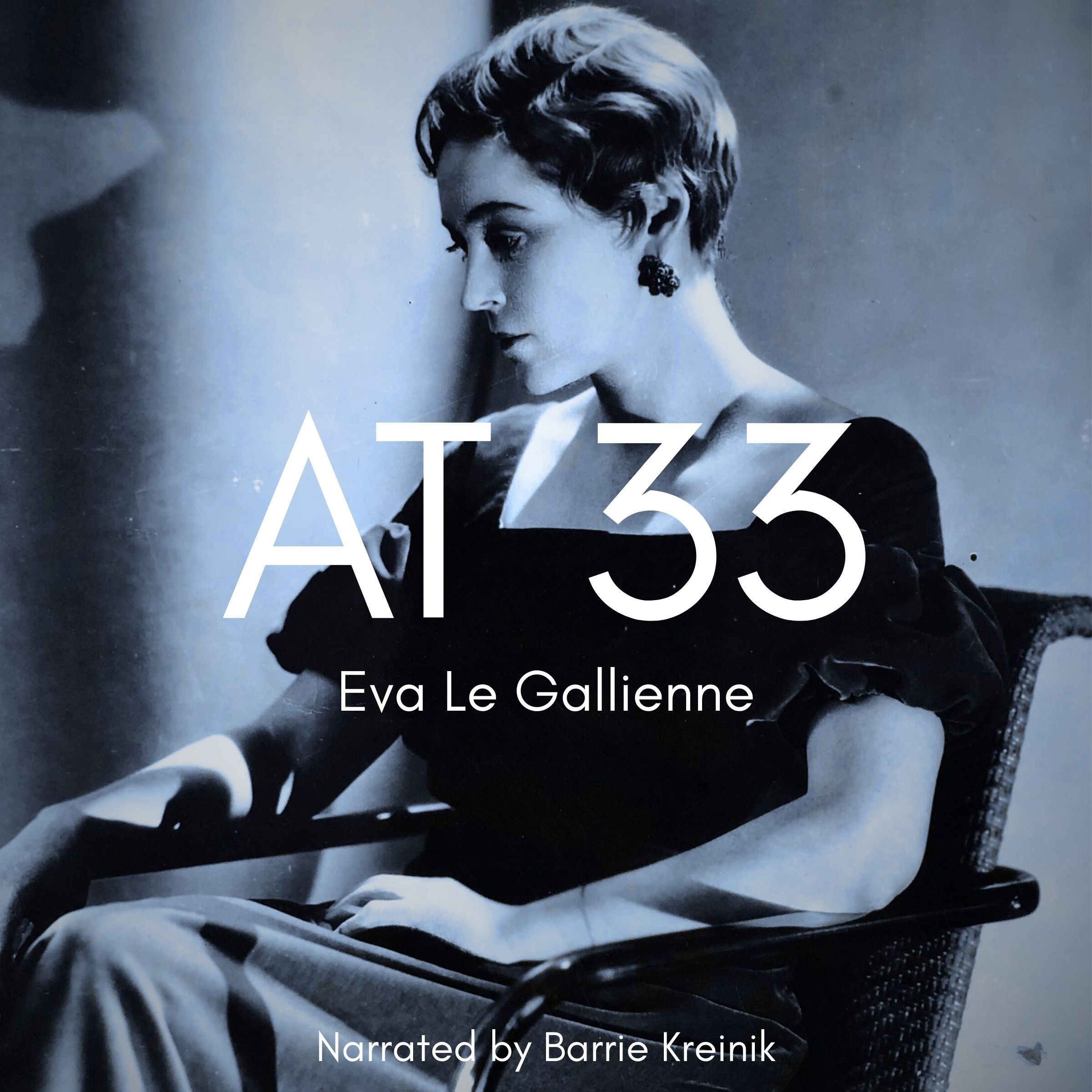Georgia 2
Listen to Georgia 2, a 59-year-old man from Macon, Georgia, and Auburn, Alabama, United States. Click or tap the triangle-shaped play button to hear the subject.
Both as a courtesy and to comply with copyright law, please remember to credit IDEA for direct or indirect use of samples. IDEA is a free resource; please consider supporting us. And for a greater understanding of the International Phonetic Alphabet, which is used extensively on this site, please consult this free resource.
BIOGRAPHICAL INFORMATION
AGE: 59
DATE OF BIRTH (DD/MM/YYYY): 1946
PLACE OF BIRTH: Macon, Georgia
GENDER: male
ETHNICITY: Caucasian
OCCUPATION: history professor
EDUCATION: Ph.D.
AREA(S) OF RESIDENCE OUTSIDE REPRESENTATIVE REGION FOR LONGER THAN SIX MONTHS:
The subject got his bachelor’s degree at a school in Tennessee, and had been living in Auburn, Alabama, for 30 years prior to this recording. He also lived briefly in Atlanta.
OTHER INFLUENCES ON SPEECH: N/A
The text used in our recordings of scripted speech can be found by clicking here.
RECORDED BY: Daydrie Hague
DATE OF RECORDING (DD/MM/YYYY): 2005
PHONETIC TRANSCRIPTION OF SCRIPTED SPEECH:
[ˌwɛɫ ˈhiɹz ə ˈstɔɹi ˈfɔ ˌju | ˈseɹə ˈpʰeɹi ˌwʌz ə ˈvɛɾɹ̩ˌneɹi ˈnɹ̩ːs ˈhu əd ˌbɪn ˈwɹ̩kɪn ˈdejli ˌæɾ ən ˈəʊɫd ˈzu ˌɪ̞n ə dɨˈzɹ̩ɾɨd ˈdɪstɹɪkt əv ðə ˈtʰeɹəˌtʰɔɹi̞ | ˌsəʊ ˈʃi wə̝z ˈve̞ːɹi ˈhæpi ɾə ˈstɐɹɾ ə ˈnʲu ˈʤɐːb æ̝ɾ ə sə̥ˈpɹ̩b̥ ˈpʰɹ̥aːvɨˀt ˈpʰɹ̥æk˺ˌtɪs ɪn ˈnɔəθ ˈskʷejəɹ | ˈniə ðə ˈdʲuk ˈstɹɪjt˺ ˈtʰæwə || ˈðæɾ ˌeɹiə wəz ˈmʌʧ ˈniɹə fɹ̩ ˈhɹ̩ | ˌæn ˈmɔɹ tʰə ˌhɹ̩ ˈlɐːjkɪŋ || ˈivən ˈsəʊ ˈʔɐn hɹ̩ ˈfɹ̩s ˈmɔːnɪŋ | ˈʃi ˌfɛɫˀt ˈstɹejəst || ˌʃi ˈejɾ ə ˈbəʊɫ əv ˈpʰɔɹɪʤ̥ | ˈʧɛkt ɹ̩ˌsɛɫf ɪn ðə ˈmiɹə ˌæn ˈwɐʃt ɹ̩ ˈfejs ɪn ə ˈhɹ̩i̞ || ˈðɛ̝n ˌʃi ˈpʰʊɾ ɐɾ̃ ə ˈpʰl̥ejn ˈjɛləʊ ˈdɹɛs əɾ̃ ə ˈ7is̠ ˈʤæːkʰɪt | ˈpʰɪk˺t ˈʌp ɹ̩ ˈkʰʲɪˀt n̩ ˈhɛ̝ɾəd ˌfɹ̩ ˈwɹ̩k || wən ʃi ˈgɐˀt ˌðejəɹ | ˈðe wəz ə ˈwʌmən ˌwɪð ə ˈgɨus ˈweɾɪŋ ˈfɔɹ ˈhɹ̩ || ðə ˈwʌmən ˌgejv ˈseɹə ən əˈfɪʃəɫ ˈlɛ̝ɾɹ̩ ˈfɹʌm ðə ˈvɛ̝ːt˺ || ðə ˈlɛ̝ɾɹ̩ ɪmˈpʰlaːd ðət ˌði ˈænɪməɫ ˌkʰʊd bi ˈsʌfˌɹɪŋ ˌfɹʌm ə w- ˈɹejə ˈfɔːm əv ˈfʊt ɪn ˈmæʊ̙θ dɨˈziːz | ˈwɪʧ wəz səˈpʰɹ̥aːzɪŋ bəˌkʰʌz ˈnɔːmli ˌju wʊɾ ɪkˈspɛ̝k˺t tʰə̥ ˈsi ɪt ˌɪn ə ˈdɔːg ˌɔɹ ə ˈgəʊt || ˈseɹə wəz ˌsɛ̝ɾ̃əˈmɛ̝ɾ̃əɫ | ˌsəʊ ˈðɪs ˌmejɾ ɹ̩ ˈsɐɹi fɹ̩ ðə ˈbjuɾɪfɫ ˌbɹ̩d || bəˈfɔɹ ˌlɔŋ | ˌðæˀt ˈɪʧi ˌgɨus bɨˈgæn tʰʊ ˈstɹʌɾ əˈɹæʊn̪ ði ˈɔfɪs lak ə ˈlunətʰɪk | wɪʧ ˈmejd ˌæn ˌʌnˈsæɾ̃əˌtʰeɹɪ ˈmɛ̝s || ðə ˈgɨusɨz ˌəʊnɹ̩ | ˈmeɹi ˈhæ̝ɹəsən | ˈkʰɛ̝pt ˈkʰɔɫɪŋ ˈkʰɐmə | ˈkʰɐmə | ˌwɪʧ ˈseɹə ˌθɔˀt wʌz ən ˈɐd ˈʧɔjs fɹ̩ ə ˈnejm || ˈkʰɐmə wəz ˈstɹɔŋ n̩ ˈhʲuʤ | ˈsəʊ ət wʊd ˈtʰejˀk ˌsʌm ˈfɔɹs tʰə ˈtʰɹæp hɹ̩ bʌt ˈseɹə ˌhæɾ ə ˈdɪfɹɨɾ̃ ˈaːdiə || ˈfɹs ʃi ˌtʰɹaːd ˈʤɛ̝̃ʔli ˈstɹəʊkʰiŋ ðə ˈgɨusɨz ˈləʊwɹ̩ ˈbæˀk ˌwɪð ɹ̩ ˈpʰɐːm | ˈðɛ̝n ˌsiŋiŋ ə ˈtʰɨun ˌtʰu ɹ̩ || ˈfaːnɫi | ˈʃi ədˈmɪnəstɹ̩d ˈiθɹ̩ || ˌhɹ̩ ˈɛ̝fɹ̩ts wɹ̩ ˈnɐˀt ˈfjuɾɫ̩ || ˌɪn ˈnəʊ ˌtʰaːm ðə ˈgɨus bɨˈgæn tʰə ˈtʰaːəɹ | ˌsəʊ ˈseɹə wəz ˈejbɫ̩ tʰə ˈhəʊɫd ˌɐn tʰə ˈkʰɐmə æŋ ˈgɪv ˌhɹ̩ ə ɹəˈlæksim ˈbe̞əθ || ˈwʌnts ˈse̞ɹə ed ˈmænɨʤ tʰə ˈbej ðə ˈgɨus | ˌʃi̞ ˈwajpt hɹ̩ ˈɔf wɪθ ə ˈkʰl̥ɔθ | ˌænd ˈlejɾ ɹ̩ ˌɐɾ̃ ɹ̩ ˈɹɐjˀt saːd || ˈðɛ̝n ˈseɹə kənˈfɹ̩md ðə ˈvɛts ˌdaəgˈnəʊsɨs || ˈɐɫməʊst ɨˈmiɾiəˀtli ˌʃi ɹəˈmɛmbɹ̩d ˌɛn əˈfɛ̝ˀktɪv ˈtʰɹ̥ɨiˀtmənt | ˌðæˀt ɹəˈkʷaəɹd ˈhɹ̩ tʰʊ ˈməɛʒɹ̩ ˈaʊt ə ˈlɐɾ əv ˈmɛ̝ɾəsən || ˌseɹə ˈwɔːnd ðɛˀt ˌðɪs ˈkʰəʊəs əv ˈtʰɹ̥iˀtmən ˈmajʔ ˈbi ɪkˈspɛ̝nsɪv | ˌiðə ˈfaːv ɔ ˈsɪks ˌtʰaːmz ðə ˈkʰɔst v̩ ˌpʰɛ̝nəˈsɪ̝lən || ˈa ˈkʰæ̝̃ʔ ɨˈmæʤən ˈpeɪŋ ˌsəʊ ˈmʌʧ | ˌbʌˀt ˈmɪsɨz ˈhɛɹəsən | ə ˈmɪliəneɹ ˈlɔjɹ̩ | ˈθɔːɾ ɨʔ wɨz ə ˈfeɪə ˈpʰɹ̥ajs ˌfɹ̩ ə ˈkʰjʊə]If the phonetics are not displaying properly for you, see the first part of this PDF.
TRANSCRIBED BY: Ryan Denzer-King
DATE OF TRANSCRIPTION (DD/MM/YYYY): 2011
ORTHOGRAPHIC TRANSCRIPTION OF UNSCRIPTED SPEECH:
I’ve been teaching history at Auburn for the past 30 years. I went to Emery to do my Ph.D. and graduated back in the 1970s after doing my bachelor’s degree at the University of the South at Sewanee, Tennessee, which is a well-known Episcopal college — I think it’s well-known — for about a thousand students. I was from a small town in Georgia, but went to a, a boarding school in Atlanta, where the chaplain was an Episcopal clergyman. So he was really on me to go there to college, and, so, despite my parents’ wish that I go to Emery for undergraduate work, I decided to go to Sewanee instead; just to sort of defy them, as people are wont to do at that age. It was a great choice; it was a wonderful school, and I did end up getting to go to Emery, and came here afterwards and have been here ever since. Lo, these, uh, many decades, and while it was very different from Sewanee and Emery, uh, I’ve been very happy here and have really enjoyed being here, because I think Auburn is very special place, even, I’d dare say, unique, in terms of the atmosphere and of the relations between the students and the professors. And of course, I can’t complain, it’s not that far from my home. And over the years it’s made it possible for me to be near family both in Georgia and in Alabama, which I think is very, very nice, when one’s close to one’s family, as am I. So I’m always glad to have that opportunity, and who knows? I could have gotten a job far away and not had these opportunities at being so close to family. And, believe it or not, Auburn over the decades has grown, not so much in numbers of students — there were about 16,000 when I came, and 22[000] or so now — but in terms of what we can do and places we can go. And, always, especially my first year here, I kept telling myself [unclear] Atlanta is less than two hours away, meaning there was a world outside. And this is very important when you are a single professor and you need a little social life. Because, uh, it probably is not wise to, um, play with undergraduates, and so it was good to get away to Atlanta, and, uh, get to be with friends over there, when I had, uh, a desire at that time in life to have a wild old time and, uh, go, so I could just go to Atlanta and get all of that out of my system and then come here, and, um, go to McDonald’s or something more tame.
TRANSCRIBED BY: Jacqueline Baker
DATE OF TRANSCRIPTION (DD/MM/YYYY): 10/12/2007
PHONETIC TRANSCRIPTION OF UNSCRIPTED SPEECH:
ˈav bɪn ˈtʰiˀʧɪŋ ˈhɪstʰɹ̥i ˌæˀt ˈɔːbɹ̩n ˈfɔ ðə ˈpɛjəs ˈθɹ̩ɾi ˈjiɹ̩z || ˌa ˈwɛ̃ˀt ˈtʰɨu ˈɛ̝mɹi tʰɨ ˈdɨu ˌma ˈpʰɨi ˌɛ̙jʧ ˈdɨi ən ˈgɹæʤuˌwɛ̙ɾɨd ˈbæ̝ːkʰ ˌɪn̪ ðə ˈnajnˌtʰin ˈsɛvn̩ˌdɨiz | ˈæ̝ftɹ̩ ˈdɨuɪŋ ˌma ˈbæʧlɹ̩z dəˈgɹɪ ˌæˀt ði ˈjuɾ̃ɨˌvɹ̩sti əv ðə ˈsæʊθ æˀt sʊˈwɐni ˈtʰɛ̝ɾ̃əˌsɨi | ˌwɪʧ ɪz ə ˈwɛɫ ˈnəʊn əˈpʰɪskəpɫ̩ ˈkʰɐlɨʤ | ḁ ˈθɪŋk ˌɪts ˌwɛɫ ˈnəʊn | ˈfəwəɹ əˈbaʊɾ ə ˈθæʊzn̩ ˈstiʊdn̩s || ˈa wəz fɹəm ə ˈsmɔɫ ˈtʰæ̝ʊn ɨn ˈʤɔəɹʤə ˌbʌʔ ˈwɛ̃ʔ ˌtʰu ə…ə ˈbɔəɾɪŋ ˈskɨuɫ ɪn ə̘ˀtˈlæ̃ɾ̃ə ˌweə ðə ˈʧæˀplə̘n wəz n̩ əˈpʰɪskəpɫ̩ ˈkʰl̥ɹ̩ʤɪmən || ˈsəʊ ˈhi ˌwɔz ˈɹili ˈɐwn ˌmi ɾə ˈgəʊ ˌðeə tʰə ˈkʰɐlɨʤ | ˈæn ˈsəʊ dɨˈspaɛˀt ˌma ˈpʰeɹənts ˌwɪʃ ðəɾ aj ˌgəʊ ɾə ˈɛ̝mɹi | əː | fɹ̩ ˌʌndɹ̩ˈgɹæʤuəˀt ˌwɹ̩k ˌa dɨˈsaːɾɨd tə ˈgəʊ ɾə səˈwɐɾ̃i ɪnˈsteɪəd | ˈʤʌst tʰə ˈsɔɹɾ əv dəˈfaː ðəm | ˌæːz ˈpʰipɫ̩ ɐɹ ˈwɔ̃ˀt tʰə ˈdɨu æˀt̪ ˌðæɾ ˈeːjʤ || ɐː ˈɪ wəz ə ˌgɹejˀt ˈʧɔːis | ˌɪʔ wəz ə ˈwʌndəfɫ̩ ˈskɨuɫ | ˌæɾ̃ a ˈdɪd ˈɛnd ˌʌp ˈgɛ̝ɾɪŋ tʰə ˈgəʊ ɾə ˈɛ̝mɹ̩i | ˌæːnd ˈkʰejm ˈhiɹ ˈæftɹ̩ˌwɹts | ˌæːnd æ̝v ˈbɪn ˌhiɹ ˌɛvɹ̩ ˈsɪəns | ˈləʊ ˌðiz əː | ˈmɛ̝ɾ̃i ˈdɛkʰejdz | ˌæːnd ˈwaɫ ˌɪˀ wəz ˈvɛɹi ˈdɪfɹ̩nˀ ˈfɹʌm səˈwɐɾ̃i ˌænd ˈɛ̝mɹ̩i | ˈʌm | ˈaɪv ˌbɪn ˈveɹi ˈhæpi ˈhiəɹ | ˈæːnd ˌhæv ˈɹili ɪnˈʤɔjd əː ˈbijɪŋ ˈhiɹ bɨˈkʰʌz a ˈθɪŋk ˈɔbɹ̩n ɪz ə ˌveɹi ˈspɛʃɫ̩ ˈpʰl̥ʌjs | ˌivəɾ̃ aː ˈdeɹ ˈsej ˌjɨuˈnɨik | ˈɪn ˈtʰɹ̩mz ˈʌv ˌði ˈæˀtməsˌfiəɹ ˌænd əv ðə ɹəˈlejʃəns bəˈtʰw̥in ðə ˈstɨudn̩s ˈænd̪ ðə pʰɹ̥əˈfɛsɹ̩z || ˈænd əv ˈkʰɔəs a ˈkʰæ̃ʔ km̩ˈpʰl̥ʌjn | ɪˀs ˈnɐˀt̪ ˌðæˀt ˈfɐɹ ˈfɹʌm ˌma ˈhəʊm || ˈæːn ˈəʊvə ðɨ ˈjiːɹz ˌɪˀts ˈmejd˺ ˌɪʔ ˈpɐsbɫ̩ fə ˈmi tʰə̥ ˈbi ˈniəɹ | ə | ˈfæːmli ˌbəʊθ ɪn ˈʤɔəɹ̞ʤə ˈænd ˌɪn ˌæləˈbæmə | ˈwɪʧ ˌa ˈθɪŋk ˌɪz ˈveɹɪ ˈveɹɪ ˈnaɪs | ˌwɛn ˈwʌ̹ɾ̃ ˌɪz ˈkʰl̥əʊs ˈtʰu ˌwʌnz ˈfæmli | ˈæz ˈæm ˈaː || ˈsɔ m̩ ˈɔʊwejz ˈglæ̝d tɨ ˈhæ̝v ˈðæ̝ɾ ˌɐpɹ̩ˈtʰʲɪuɾ̃əˌtʰɨi ɛn || ˌhɨu ˈnəʊz | ˈa ˈkʰʊɾ əv ˈgɐʔn̩ ə ʧɐb ˈfɐɹ əˈwej ˈæn ˈnɐˀt ˈheəd̪ ˌðiz ˌɐpʰɹ̩ˈtʰʲuɾ̃əˌtʰiz ˌæ̝ˀt ˌbɨjɪŋ səʊ ˈkl̥əʊs ˌtʰɨu | ə̤ | ˈfæːmli || ˈɛ̝ənd | bəˈliv ɪɾ ɹ̩ ˈnɐːˀt | ˈɔbɹ̩n ˌəʊvɹ̩ ðə ˈdɛˌkʰəɪdz ˌhæz ˈgɹəːʊn | ˈnɐˀt ˌsəʊ ˈmʌʧ ˌɪn ˈnʌmbɹ̩z əv ˈstɨudənts | ˈeɹ wɹ̩ əˌbaʊˀt ˈsɪkstin ˌθeəʊzn̩ ˌwɛɾ̃ a ˈkʰejm n̩ ˌtʰw̥ɛɾ̃i ˈtʰɨu ɹ̩ ˌsəʊ ˈnẽə̃ʊ̃ | ˈbʌt ˌɪ̝n ˈtʰɹ̩mz ˌɐv ˈwʌʔ ˌwi kʰn̩ ˈdɨʊ n̩ ˈpʰl̥ejsɨz ˌwi kʰn̩ ˈgəʊ || ˈeənd | ˈɔɫwejz | n̩ spɪˈɛ–ˈspɛʃli ma ˈfɹ̩stʲ ˈjiɹ ˌhiɹ a ˈkʰɛp˺ ˈtʰɛlɪŋ ˌmaːˌsɛɫf ˈəʊvɹ̩ n əgɛn | ɪtˈlæɾ̃ə ɪz ˈlɛs ðən ˈtʰu ˌeəʊɹz əˈwəj | ˈmiɾ̃ɪŋ ˈðeɹ wəz ə ˈwɹ̩ɫd ˈɛəʊˀtˌsaːd || ˈɛn̪ ˈðɪs ɨz ˈveɹɪ ɪmˈpʰɔːd n n̩ˀ wən ˈjɨu ˈɔːɹ | ə ˈsɪŋgɫ̩ | ə | pʰɹ̩ˈfɛsɹ̩ | ˈæn ˌjɨu ˈniːdˡ ˌɫ̩ɪdˡɫ̩ ˈsəʊʃɫ̩ ˈlajf || bəˈkʰɔəz | ɛː ˌiʔ ˈpʰɹ̥ɐbli ɪz ˈnɐˀt ˈwaːz ˌtʰɨu əm | ˈpʰl̥ej ˌwɪð ˌʌndɹ̩ˈgɹæʤˌwɪts | ˌɪn ˌsəʊ | ˈɪ wəz ˈgʊd tʰə ˈgɛɾ əˈwej | ˈtʰɨu ətˈlænə ænd əː | ˈjæ ˌtʰu ə ˈbi wɪθ ˈfɹeəndz ˌəʊvə ˈðejəɹ | ˈwɪn a ˈhejəd | ə | dz̩ˈaɹ̩ ðɛˀt ˈtʰajm ɪn ˈlajf | ˈtʰɨu ˈhæv ˌej ˈwajɫd ˌəʊɫd ˈtʰaːm | ˈeənd ə | ˈgəʊʔ ˌsəʊ a kʰəd ʤəsˀt ˈgəʊ ɾu əˀtˈlæɾ̃ə ən ˈgɛɾ ˌɐɫ ˌðæɾ ˌæʊɾə maj ˈsɪstəm | ˌɛn̪d̪ ˌðɛn ˌkʰʌm ˈhijɹ̩ | ˈɛnd˺ | ə | ˈgəʊ ɾə ˌmæk˺ˈdɐnɫdz ɔə ˈsʌmp˺θɪŋ | ˈmɔɹ | ə | ˈtʰejm | ˌɛn səʊ ˈðæ̝ˀt wəz ˈvɛɹi ɪmˈpʰɔɹʔn̩ʔ fɹ̩ mi
If the phonetics are not displaying properly for you, see the second part of this PDF.
TRANSCRIBED BY: Ryan Denzer-King
DATE OF TRANSCRIPTION (DD/MM/YYYY): 2011
SCHOLARLY COMMENTARY:
Subject is a history professor at a land-grant university and has lived in the South all his life. The subject’s resonant placement is forward and slightly nasal. He has a definitive drawl, elongating vowels and diphthongs for emphasis, and a variable treatment of r. Notice his vowels in words such as “bath” and “my,” in addition to his use of the liquid /u/ in words like “tune.”
COMMENTARY BY: Daydrie Hague
DATE OF COMMENTARY (DD/MM/YYYY): 2005
The archive provides:
- Recordings of accent/dialect speakers from the region you select.
- Text of the speakers’ biographical details.
- Scholarly commentary and analysis in some cases.
- In most cases, an orthographic transcription of the speakers’ unscripted speech. In a small number of cases, you will also find a narrow phonetic transcription of the sample (see Phonetic Transcriptions for a complete list). The recordings average four minutes in length and feature both the reading of one of two standard passages, and some unscripted speech. The two passages are Comma Gets a Cure (currently our standard passage) and The Rainbow Passage (used in our earliest recordings).
For instructional materials or coaching in the accents and dialects represented here, please go to Other Dialect Services.
 IDEA: International Dialects of English Archive
IDEA: International Dialects of English Archive



